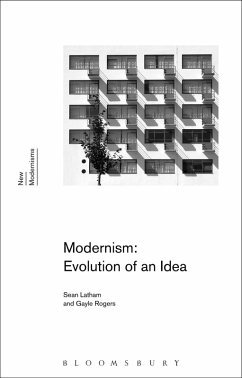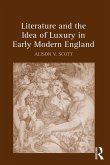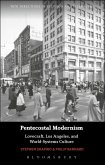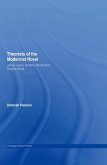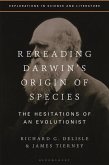What exactly is "modernism"? And how and why has its definition changed over time?
Modernism: Evolution of an Idea is the first book to trace the development of the term "modernism" from cultural debates in the early twentieth century to the dynamic contemporary field of modernist studies. Rather than assuming and recounting the contributions of modernism's chief literary and artistic figures, this book focuses on critical formulations and reception through topics such as:
- The evolution of "modernism" from a pejorative term in intellectual arguments, through its condemnation by Pope Pius X in 1907, and on to its subsequent centrality to definitions of new art by T. S. Eliot, Laura Riding and Robert Graves, F. R. Leavis, Edmund Wilson, and Clement Greenberg
- New Criticism and its legacies in the formation of the modernist canon in anthologies, classrooms, and literary histories
- The shifting conceptions of modernism during the rise of gender and race studies, French theory, Marxist criticism, postmodernism, and more
- The New Modernist Studies and its contemporary engagements with the politics, institutions, and many cultures of modernism internationally
With a glossary of key terms and movements and a capacious critical bibliography, this is an essential survey for students and scholars working in modernist studies at all levels.
Modernism: Evolution of an Idea is the first book to trace the development of the term "modernism" from cultural debates in the early twentieth century to the dynamic contemporary field of modernist studies. Rather than assuming and recounting the contributions of modernism's chief literary and artistic figures, this book focuses on critical formulations and reception through topics such as:
- The evolution of "modernism" from a pejorative term in intellectual arguments, through its condemnation by Pope Pius X in 1907, and on to its subsequent centrality to definitions of new art by T. S. Eliot, Laura Riding and Robert Graves, F. R. Leavis, Edmund Wilson, and Clement Greenberg
- New Criticism and its legacies in the formation of the modernist canon in anthologies, classrooms, and literary histories
- The shifting conceptions of modernism during the rise of gender and race studies, French theory, Marxist criticism, postmodernism, and more
- The New Modernist Studies and its contemporary engagements with the politics, institutions, and many cultures of modernism internationally
With a glossary of key terms and movements and a capacious critical bibliography, this is an essential survey for students and scholars working in modernist studies at all levels.

